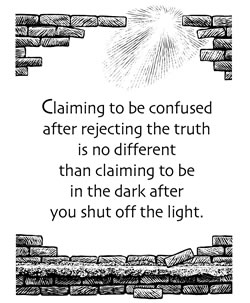Chapter
1: Confusion
I AM A
teacher, and I coach the boys’ track team at our school. Track practice
takes place every weekday after
school throughout the season. It’s always been
that way, and probably always
will be. One week I learned that a school dance was
scheduled for Friday afternoon right
after class ended. Because the dance was going
to go well into the night, I
told the boys we’d have track practice after school like
usual, and they could head over
to the dance when they were finished. I told them I
was well aware of the dance,
but practice was still on. I thought I’d made everything
clear as the boys headed to
their locker room after Thursday’s track practice.
On
Friday, about five minutes before the last bell rang, I noticed a DJ setting
up his sound equipment for
the dance in the school gym. Since our track team
practices right outside the gym, I
knew the boys were going to be frustrated when
they heard the music and saw
fellow classmates dancing. I wondered if some boys
might still be tempted to skip
practice, so, for good measure, I decided to make
one final announcement over
the intercom as a reminder. The announcement was,
“There will be track
practice as usual immediately after school today for the entire
boys track team.”
Right
as the announcement ended, eight boys from the track team walked
into my classroom dizzy with
confusion. One boy conjured up his best look of
bewilderment and asked, “Coach, do we
have practice tonight? We were wondering
because nobody really knows.” When
I again confirmed that we did, another boy
quickly asked, “What happens if we
don’t come?” My reply was simple: “You’ll be
punished.”
Confusion
was not limited to this group of boys. Many members of the track
team lingered in the hallway
debating about whether or not there was track
practice. One boy approached a team
manager to inquire about it. The manager
supposedly told him, “I think there’s
practice…but it might be optional.” That was
all that the boy needed. Now
armed with words straight from the mouth of the
team manager, he could claim
ignorance to later justify the reason he followed his
desires and went to the dance. As
I left my classroom to head to the track, another
boy stopped me to ask about
practice. I looked right at him and said, “Yes, we have
practice.” He went to the dance.
The
track boys who chose to go to the dance could actually see their teammates
running warm up laps on the track
outside as they walked into the gym. Yet these
boys remained “confused” as to
whether or not there was track practice.
Confirmations about track
practice that had taken place:
1)
I had announced there would be practice on Friday and even warned
the boys that there might be some confusion because of
the dance, but
that shouldn’t change anything.
2)
An announcement was made over the loud speaker moments before the
boys had to decide whether or not to go to track
practice.
3)
Some of the boys had approached me even after hearing the
announcement, and I told them face-to-face, “Yes we have
track
practice.”
4)
The fifty-eight boys who showed up for track practice were running
right outside the gym, and the boys who were at the
dance could
actually see their teammates running—thus confirming that
practice
was indeed taking place.
When
all seventy track boys showed up on Monday, I asked why twelve of
them had missed Friday’s
practice. The excuses varied but all came back to the
same claim: they were in a state
of ignorance due to so much confusion. Some
insisted that I hadn’t made it
clear. One blamed the manager for saying practice
was optional. Others swore
they forgot. And all the boys who went to the dance
confirmed each other’s confusion by
contending that there was just no way of
knowing whether or not we had
practice. Their strategy involved insisting on
confusion. They figured if enough
people said they were confused, I would have to
accept it as a legitimate excuse.
But I didn’t. The confused boys lost the privilege of
running in our first track meet.
As
I stood there on Monday
clear to me that, in life,
people choose
anything more to get them to track

carrying them from the school to
the
probably would have slipped away to
the
my effort to communicate
obvious truth,
chose to remain confused.
Today the people of the
junior high boys. It’s a growing
cultural
right, true, and moral. It’s hip
to claim ignorance and say, “I don’t think we can ever
really know for sure about things
we can’t see.” In fact, claiming ignorance is the
quickest way to avoid any kind of
personal responsibility to know and understand
the spiritual side of life.
But
just because there so are many conflicting beliefs in this world doesn’t
mean we can claim to be “confused”
about what’s right without facing serious
consequences. And just because certain
Bible teachings may baffle us doesn’t give
us a free pass to skip over
them. Just because some Christian doctrines are hotly
debated doesn’t mean we aren’t
accountable for examining the evidence ourselves.
We
can’t hide behind our claims of confusion any longer. We must stop making
excuses and admit that things can
be known for certain. It’s time for us to quit
being lazy and get busy gaining
the understanding we lack. Like the track boys, the
excuse of, “I just wasn’t sure
which way was right,” is not going to cut it in the end.